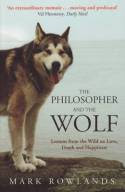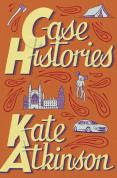 The first major national census in Britain was carried out in 1841* (although there are a few that were taken here and there and survive in isolation earlier than that) and they have been taken every ten years since with the exception of 1941 during WWII. Census data itself is considered ‘classified’ by the Public Records Office; general access to the information is only allowed 100 years after the date of the census.
The first major national census in Britain was carried out in 1841* (although there are a few that were taken here and there and survive in isolation earlier than that) and they have been taken every ten years since with the exception of 1941 during WWII. Census data itself is considered ‘classified’ by the Public Records Office; general access to the information is only allowed 100 years after the date of the census.When it’s taken in two years time, the 2011 Census will be the fifth in which I have a mention. It will also be the third one that I can actively remember and the second in which – if nothing changes between now and then – I’ll be listed as ‘head of household’. Scary thoughts.
Now I’m really no historian of any sort whatsoever, so quite why I started thinking about the census I don’t know. Maybe what triggered it off was thinking about my little house by the seaside. It was built around the mid 1880s-early 1890s, one in a little terrace row of which seven still remain. I had a quick peep at the online records of the 1891 and 1901 census; the house has been built by the time of the former but was seemingly unoccupied on census day itself, something that had changed next time round ten years later.
It could have been that, yes. Or it could have been thinking about how we seem, as a species, to love to collect and classify data of all kinds. From counting bricks and mortar, bees and cows, fields and flowers and forests, to labelling people as this type or as a member of that group or of whatever inclination; with this set of personality attributes, that range of traits or of XYZ level of attainment or intellect, and so on.
But whether it’s concrete or abstract in nature, officially sanctioned or individually conjured, consciously or unconsciously collected, at a personal level we tend to use the data for one main purpose: to work out where and what we are in comparison to others and in the process to find out who we are. This constant process of comparing and analysing may act as a reassurance and a buffer, or perhaps as a motivation and a spur; maybe occasionally, for some, it makes us feel down, inadequate or depressed. In any event it provides us with an anchor of a kind, a root of some sort in our community – whatever and wherever and however fluid that community may be. Fundamentally, it helps us to answer the question “who am I?”
By the time we reach adulthood, we assume that our personalities, tastes, attributes, whatever, are fixed somehow. Or again, at least I did. But in this last year or two I observe in myself some distinct shifts and reworkings. Some – like my change from being logic-driven to emotionally propelled – I have mentioned before. Others, like discovering a hitherto non-existent sweet tooth – and the intense sugar cravings it brings with it – are just plain amusing to observe.
Over the weekend, I had cause to think of these things prompted by a previously unknown (to me) reaction to something that happened in a social situation. Subsequently, I think I may be in the midst of carrying out my own personal census survey without realising it. I may report back on my findings at a later date but perhaps - I hope - a little bit sooner than 100 years from now.
*Of course, there are other types of records that go back much further than the national census. Town and Parish records of births, marriages and deaths; land, agricultural and livestock surveys; records collected for tax purposes, including at one time the number of windows a property had; and a hundred and one other ways of attempting to record, collate and generally analyse the population, its assets and its doings. I’m sure this has probably gone on for as long as people have lived in settled groups or communities of one kind or another.
The famous Doomsday Book was commissioned in 1085 by William the Conqueror following his invasion of England in 1066. The first draft (1086) contained records for nearly 13,500 settlements in the English counties south of the rivers Ribble and Tees (the border with Scotland at the time). It contains records of landowners, their tenants, the numbers of villagers, smallholders, freemen and slaves that lived on their land, details about woodlands, meadows, animals, buildings, churches, castles and mills. Some entries even make reference to land disputes and dues that had to be paid to the king.




I think personal census survey is a good description of what I have been doing for the past year or two.
ReplyDeleteYou really have me curious about what your "findings" will be, but I don't think I'll last another hundred years, so please step it up if you actually plan to publish. Just teasing ....
Referring back to the "frosty" gentleman who visited me, I think he just lost it when he saw me say I became a Republican. (Maybe he should have asked what I meant by, "the first time among the many conversions in my life.") Those on the far end of either political party here tend to zone out into a zombie state when they feel they have been personally insulted. In his particular case, though, I think it a shame he ever was involved with educating children.
As for the other element, remember, I said "good reporter." I think I'll write more about that in the days ahead.
Sleep tight.
Glad I'm not the only one to be carrying out a life audit Fram!
ReplyDeleteI agree with you. I think for someone to hold your 'frosty' visitor's views on education to have been involved in education himself is a terrible irony. We could possibly assume he didn't always feel that way - which makes one wonder what happened along the path of his career / life to cause such resentment to brew inside to that extent?
Interested to read more about the reporter theme. It's soemthing that fascinates me. I think I'd like to have been a journalist.